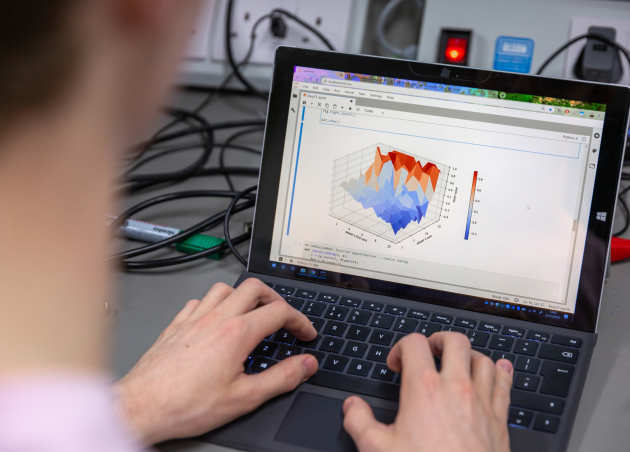Supporting you in a time of disruption
 The outbreak of COVID-19 has triggered a sudden change in how teaching and learning take place at Imperial.
The outbreak of COVID-19 has triggered a sudden change in how teaching and learning take place at Imperial.
The FoNS EdTech Lab brings you this resource on online learning to help you plan and adapt your module's learning design to continue to provide an engaging and effective learning experience for your students.
We are here for you
There are many opportunities for innovative pedagogy in an online learning environment.
The EdTech Lab is here to help you make the most of them. Email us at fonsedtech@imperial.ac.uk.
Adapting your learning design
Adapting your module's learning design for an online learning environment may seem daunting. Here we suggest an approach to make it manageable.
Adapting your learning design
- Analyse your module
- Design for active learning
- Get everyone on the same page
- Build an online learning community
New roadmap
- Review your module and identify what has to change because of the switch to an online learning environment.
- Create a revised module roadmap reflecting all the changes in activities and resources.
- Make sure everyone involved knows what teaching, learning and assessment activities are included in the revised module, when each activity is scheduled, where to find resources and how students will participate.
Self-directed work
- What elements of your module will be self-directed and student-led?
- Label these and make sure there are clear instructions on what students are expected to do and when.
- It is helpful to provide an indication of expected time commitment for each activity.
Synchronous contact
- What elements of your module need synchronous contact and access to the teacher?
- Ensure that these have a clear purpose.
- Label these, highlight when they will be, and make sure students know how to participate in the synchronous contact event.
Optional content
- Online learning activities can take longer than learning in a face-to-face environment
- Consider whether certain elements of your module can be turned into optional "extended learning opportunities" or if any elements should be omitted altogether.
Break up lecture content
- Where possible lecture content should be delivered in a more flexible way, i.e. not converting 20 lectures directly into 20 hour-long video lectures.
- Rather break your presentation or Panopto videos into chunks, interspersed with opportunities for student activity (e.g. quizzes or practice problems).
Flexibility
- Teaching and learning online gives students greater flexibility to personalise their learning journey. Use this to boost student engagement. Allow for choice, flexibility in when work is undertaken, and multiple ways to ask questions and get help.
Interactivity
- Interactivity also boosts student engagement.
- Be proactive in encouraging students to take part in online discussion. Personal messages, guiding questions and timely shared readings can be useful techniques.
- Consider options like self-assessment quizzes for students to check their learning and get feedback.
Communicate
- Digital learning environments provide many ways to communicate. Use them well so students know what they need to do when and how to access everything they need.
Help students use the course content
- Make content easy to find and in formats that are inclusive for all, including those with special requirements or poor internet connections.
Promote peer learning
- Foster formal and informal peer learning, encouraging students to make connections with one another.
Be present and proactive
- Three presences are recognised as necessary to establish a community of learners in an online course, as outlined in The Community of Inquiry Framework(Garrison, Anderson, and Archer in 2001):
- Teaching presence
- Cognitive presence
- Social presence
- Choose approaches to cultivate each type of presence.
Your FoNS EdTech Lab can help. Please get in touch via fonsedtech@imperial.ac.uk.
Contact us
The Ed Tech Team is here to help you grasp opportunities for innovative pedagogy in an online learning environment. Get in touch at fonsedtech@imperial.ac.uk.